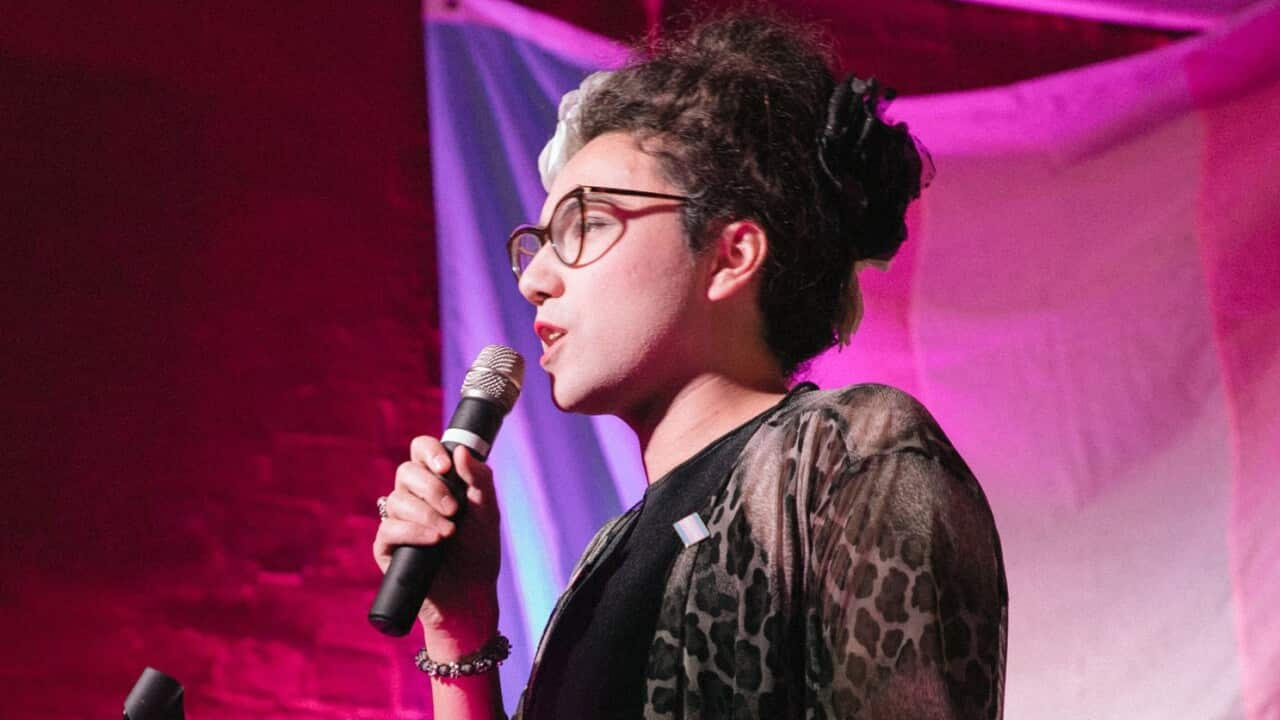This article contains references to suicide.
On the surface, Adelaide and Cairns may not have much in common.
The South Australian capital is set amid rolling vineyards, while sunny Cairns is perched right on the coast in tropical Queensland.
But for Bayley Turner, who spent her childhood years in those cities, one thing was remarkably similar about them.
“They were both equally hostile,” the 32-year-old transgender woman told SBS News.
“I grew up in the 90s when the society was treating gay men with dismissal and derision and harassment. I have experienced the bullying and vile treatment that comes with this,” said Ms Turner who transitioned two years ago.
Memories of those hostile years still haunt Ms Turner, particularly when the topic of transgender rights crops up in blistering political debates as part of the election campaign.
Earlier this week, .
The bill, spearheaded by Liberal backbencher Claire Chandler, was supported by the prime minister’s hand-picked candidate for Warringah, Katherine Deves, who was exposed for making social media posts where she referred to transgender people as “surgically mutilated and sterilised”.
While the prime minister abandoned his support for the bill on Wednesday, with , Ms Turner said news like this is incredibly damaging for the mental health of transgender people.
“Being treated as fodder for political campaigns is incredibly demoralising, incredibly damaging to my mental health as a human being.
“It impacts my relationships. It impacts my ability to see a future for myself,” she said.

Transgender woman Bayley Turner. Credit: MEAGAN HARDING
“Being transgender is more in the mainstream than it ever was before and young people in particular have 24/7 access to news and social content in a way that I didn’t as a young person.
“I had respites away from the computer at home. Whereas young [trans] people don’t have anywhere to go online where they [are not subjected to] bullying and harassment and threats,” Ms Turner said.
And political discussions like these further exacerbate the situation, she said.
Transgender woman and CEO of Transgender Victoria Mama Alto agrees.
“It is cruel and unnecessary to turn trans and gender diverse people’s lives into election campaign fodder,” she told SBS News.
“The current discussion stemming from the Chandler Bill is particularly unnecessary, given Section 42 of the Sex Discrimination Act 1984, as amended and in force on 11 September 2021, already includes provisions to exclude trans and gender diverse people from competitive sport based on physical attributes.”
Ms Alto said discussions like these have a direct impact on the mental health of transgender people.
“Trans and gender diverse people are more likely to experience poor mental health outcomes, including self-harm and suicide,” she said.
“This is not because we are trans – it is because of the cumulative impact of stigma, discrimination and violence against trans people.
“Political and media conversations [that] demonise and sensationalise trans and gender diverse people, and encourage our exclusion, have a severe impact [on] mental health outcomes in our communities.
“It’s unacceptable at a time when government expresses they are more than ever committed to reducing mental health and suicide,” she said.
According to a survey published by LGBTIQ+ Health Australia in April 2021, transgender people aged 14-25 are fifteen times more likely to attempt suicide than the general population.
In fact, the survey pointed out, 48 per cent of transgender and gender diverse people aged 14 to 25 reported that they had attempted suicide in their lifetime.
“When you have people across the media actively preventing you from doing the things you enjoy, including playing sport, you feel hatred for yourself, [leading to] exponentially higher rates of self-harm and suicide across queer transgender [people],” Ms Turner said.
She said discussions like this make it unsafe for her to even get on the train to go to work.
“I’m not what people would call ‘passing’ so my appearance means that my transness is available for most people to assess visually,” she said.
Political discussions on whether trans people should be allowed to do something become a part of her everyday life, Ms Turner said.
“Because that is the lens through which people are seeing me [on that train]. That is the lens through which they’re responding to me and treating me. And that does affect me adversely,” she said.
Readers seeking crisis support can contact Lifeline on 13 11 14, the Suicide Call Back Service on 1300 659 467 and Kids Helpline on 1800 55 1800 (for young people aged up to 25). can be reached through online chat or on 1800 184 527. More information and support with mental health is available at and on 1300 22 4636.




